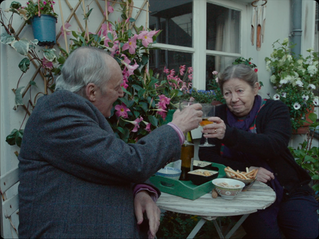Tongues Untied
- Charlotte Mansfield
- Nov 1, 2020
- 1 min read
Marlon Riggs, 1989

Essex Hemphill and Marlon Riggs’s Tongues Untied is a beautiful collage of poetry, music and theatre, acting not only as a political declaration but a personal pronunciamento. The film wonderfully translates the artists’ pain in navigating their identities as Black gay men to the backdrop of police brutality, homophobia and isolation in their own communities in 1980s America.

Thirty years on, the short remains crisp in its wit and acute in its affirmations. The now nostalgic technology and fashion captured in hindsight adds to its charm, while the lack of social and political changes since its making are a reminder of prevailing injustices. For this reason, the film feels incredibly important, in viewing both as an individual and a member of society, to reflect on and challenge the values conditioned via Western popular culture.

As a piece of art, the film presents enchanting compositions, memorable in their ability to provoke discomfort as well as intrigue (the film was met with controversy and its television release contested). Even stripped of its politics, Tongues Untied is alluring. The frequent chanting feels magical, as does one sequence in which Riggs himself is unveiled like a statue, thereafter baring his inner world. Seriocomic interlude “Snap Diva” presents a guide to snapping as a form of social jousting, acting as a weapon to add to one’s toolkit. Montages of harassment and slurs are evocative of the claustrophobia of discrimination coming from the anonymous lips.

The journey documented is one of self discovery, or rather re-discovery; the artists sought something outside of themselves only to return, asserting that “Black men loving black men is the revolutionary act”.









Comments